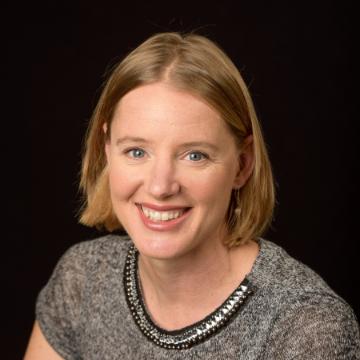
How to Beat a Bully
When I was in middle school, no one used the word “bullying” to describe the treatment I got from my classmates. What we might now call bullying was, back then, considered a normal part of middle school: cool kids, uncool kids, sorting out their teenage social order unsupervised.
From the beginning of 6th grade until the blessed end of 8th, I was at turns laughed at, looked at with disgust, and summarily rejected or ignored. My extreme shyness contributed to the social isolation I experienced.
The implicit message from my peers—which no one had the guts to say out loud, to my face—was that my existence wasn't even worth acknowledging, much less mocking. If they had uttered actual mean things, maybe I would have argued with them. Instead, I absorbed their mostly silent rejection.
My mom, who would most days cryptically say while peeling carrots or stirring a pot, “It gets better,” and my 6th grade history teacher who opened her classroom to me every afternoon were my saving grace. Not even the adults at my school acknowledged, however indirectly, what they had to have noticed: me spending lunch and recess alone every single day, talking to no one for the better part of three years.
I had internalized the disdain of my classmates and turned it into a self-hating inner monologue that didn't need external reinforcement. I learned how to bully myself.
By the time I went to high school, I had internalized the disdain of my classmates and turned it into a self-hating inner monologue that didn't need external reinforcement. I learned how to bully myself. It took decades of work and, ultimately, a practical sport psychologist who understood intimately what I was battling to undo the damage. This is the devastating impact of bullying.
Anti-bullying campaigns are now prominent in middle schools for one very specific reason: Middle schools are where bullies become cool. This is because it’s an age of upheaval, uncertainty, and transition. Scared about their future, bullies use physical and verbal dominance to seize power and make sure potential threats to their power (other students who might otherwise be leaders) are afraid, deferential, submissive. It turns out bullying isn't an individual problem, but rather a societal one. Victims who are submissive and bystanders who do not stand up for the victim cement the bully’s power.
Kids today know what bullying is, what it looks like, what it sounds like. They know they can prevent and combat bullying in school with a simple tool: their voice. The kids are taught to speak up when they see someone being bullied or if they experience it themselves. Come to the aid of the bullied, and calmly stand-up for yourself.
I beat the bully in my own head by speaking up. I used my words to fight back against the lies.
I beat the bully in my own head by speaking up. I used my words to fight back against the lies.
Let us not be silent when we notice bullies wherever we encounter them, be it in our schools, on our TVs, through social media, or in our heads. Let us restore power to victims of bullying by saying out loud to them, “The bully is wrong. You are worthy.”
And let us resolve to demonstrate that fundamental truth through our actions.

